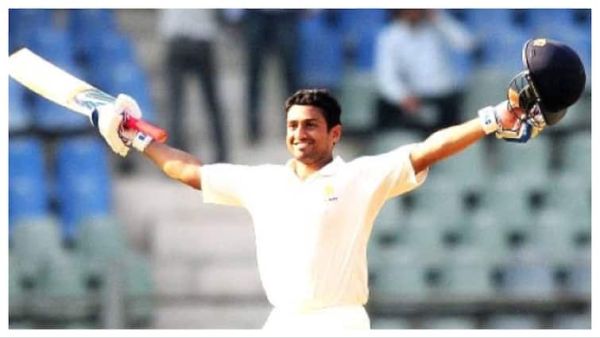
In a major diplomatic setback for Pakistan, the Financial Action Task Force (FATF) has condemned the recent Pahalgam terror attack, exposing Islamabad’s continuing role in enabling cross-border terrorism. This strong indictment by the global watchdog has bolstered India’s case to push for Pakistan’s re-inclusion in the FATF grey list, given its persistent failure to dismantle terror financing networks.
Despite repeated international warnings, Pakistan remains a safe haven for extremist groups, using financial conduits to fund carnage on Indian soil. The latest statement by the FATF has once again laid bare the duplicity of a Pakistan that speaks of peace while nurturing jihadist machinery.
Analysts opine that due to a significant tactful and forceful push post Operation Sindoor, India is preparing to mount pressure on the FATF to re-include Pakistan in the grey list, citing fresh and irrefutable evidence of Islamabad's continued support for cross-border terrorism.
At the heart of India’s charge is the revelation that dreaded terrorists like Masood Azhar continue to enjoy state protection in Pakistan, in clear violation of FATF’s 27-point Action Plan, to which Islamabad had once agreed as a condition for exiting the grey list in 2022.
But while the evidence may be compelling, the geopolitics of FATF are rarely dictated by morality alone. As India sharpens its case, the looming question is whether the United States, with its strategic interests in Pakistan, will intervene again to shield Islamabad from punitive action.
Pakistan’s brief escape from the grey list in October 2022 was facilitated by technical compliance and diplomatic cushioning. However, its relapse into old habits now threatens to reignite scrutiny. India’s diplomatic campaign will rest on five strong pillars:
n Non-compliance with FATF mandates: Pakistan was supposed to prosecute and dismantle terror networks, but the key operatives roam free, and terror financing continues through madrassas, charity fronts, and informal hawala channels.
n The protection of Masood Azhar: India’s intelligence agencies have tracked movements of Azhar, a JeM chief and global terrorist, within Pakistani territory. Islamabad’s claim that he is “missing” lacks credibility, especially with electronic proof to the contrary.
n Weak judicial action: Even when Pakistan arrests terrorists under international pressure, courts routinely release them, citing “lack of evidence” due to deliberately weak prosecutions.
n Terror as state strategy: Pakistani military doctrine has long embraced asymmetric warfare through non-state actors. This structural dependence on jihadi proxies remains unchanged.
n Loss of international credibility: Repeated exposure of duplicity, whether in Afghanistan, India, or internal tribal regions, has eroded Pakistan’s goodwill among Western allies.
The FATF grey list is not just symbolic. When Pakistan was grey-listed between 2018 and 2022, it faced an economic contraction of nearly 1.5% of GDP, reduced foreign direct investment, and downgrades by global credit agencies. Pakistani officials privately admit that the FATF compliance fatigue is growing, while its $3 billion IMF standby arrangement (2023–24) includes structural benchmarks that hinge on the FATF adherence.
A second grey listing will jeopardise multilateral funding, scare investors, and exacerbate a fragile economy already facing inflation above 25% and a plunging rupee.
The high-altitude encounter under Operation Sindoor didn’t just neutralise infiltrators, it unearthed encrypted communication devices, GPS trackers tracing movement to Bahawalpur (JeM headquarters), and confessional videos establishing the direct involvement of Pakistan’s terror proxies. The material, authenticated by global cyber forensics experts from Israel and France, forms the core of a new dossier India is preparing for the FATF and global diplomatic allies.
This dossier goes beyond routine accusations. It meticulously highlights Islamabad’s duplicity, promising the FATF that it had not shut down jihadi infrastructure while continuing to offer sanctuary to UN-designated terrorists like Masood Azhar and Sajid Mir, with whom Pakistan has long played a double game.
Here lies the real twist. The US, one of the FATF’s founding members, played a critical dual role in Pakistan’s earlier grey listing and eventual exit. Washington’s influence in the FATF decisions is substantial, and its stance could be pivotal in the upcoming review.
Pakistan, despite its tarnished image, continues to serve as a geographic pivot for US counterterrorism logistics, monitoring Taliban activity, and limiting China’s CPEC dominance in South Asia. These imperatives, though pragmatic, have led to recurrent US indulgence of Pakistan’s failings.
While India is a growing strategic partner for the US through Quad, I2U2, and Indo-Pacific frameworks, Pakistan is still viewed by sections of the US State Department and Pentagon as a “necessary nuisance”, too unstable to punish and too useful to abandon. This mindset led to the 2022 decision that allowed Pakistan to exit the grey list despite limited reforms.
However, Washington’s tolerance is fraying. The US State Department’s 2024 Report on Terrorism accused Pakistan of harbouring terror networks. Bipartisan members of Congress, particularly in Senate foreign affairs panels, have raised concerns about “strategic deception” by Pakistan’s deep state.
It’s not just rhetoric. Funding freezes, visa bans on some ISI-linked individuals, and increasing calls for recalibrating US-Pakistan ties suggest that the Trump administration may not intervene this time with the same urgency.
India’s diplomacy now hinges on a multi-pronged strategy: working with the FATF Asia-Pacific Group, presenting evidence to like-minded Western democracies, engaging Gulf nations that face spillover threats from terrorism, and exposing Pakistan’s duplicity at international forums like the UN and G20.
New Delhi is also likely to invoke UN Resolution 1267 to underline Pakistan’s duty to act against designated individuals. India’s rising global profile as a responsible democratic power makes its voice harder to ignore.
The FATF is not merely a technical forum; it is a moral test of the global financial architecture’s ability to isolate rogue actors who bankroll terror. Pakistan’s re-listing would signal that duplicity has a cost and that global mechanisms cannot be manipulated indefinitely.
If the US supports India’s initiative, it will reaffirm its commitment to counterterrorism and global norms. If not, it risks sending a dangerous message that geopolitical convenience trumps counterterror principles.
The world is watching. India has done its homework. Now, the burden lies with global stakeholders—to act not just on evidence, but on conscience.
The writer is a strategic affairs columnist and senior political analyst.
-
Are Indonesia's frequent volcanic eruptions linked to global warming?

-
UN secretary general calls for ceasefire in Israel-Iran conflict

-
Loverbirds Rashmika, Vijay spotted twinning at Hyderabad airport

-
Priyanka Chopra’s daughter Malti enjoys her first roller coaster ride

-
KL Rahul Lauds Childhood Teammate's Sensational Test Return
